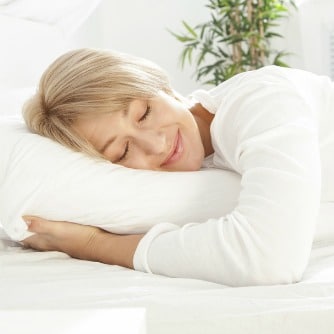As we age, we typically experience declines in the quality of our sleep. Mindfulness meditation is a self-administered approach that intentionally focuses one’s attention on the emotions, thoughts and sensations occurring in the present moment. David Black, from University of Southern California (California, USA), and colleagues enrolled 49 men and women, ages 55 years and older, who experienced moderately (or greater) disturbed sleep, who were divided into two groups. One group visited the study center for six weekly two-hour sessions of a course in Mindfulness Awareness Practices for daily living. Those included meditation, eating, walking, movement and friendly or loving-kindness practices. A certified teacher led the exercises and also instructed participants to meditate for five minutes daily, gradually increasing to 20 minutes daily. The other group attended six weeks of a sleep hygiene and education course, where they learned about sleep problems, and self-care methods for improving sleep, and weekly behavioral sleep hygiene strategies. Prior to the start of the six-week programs, the average sleep quality questionnaire score was 10.
At the end of the study period, those in the meditation group demonstrated improvement in their sleep score by an average of 2.8 points, compared to 1.1 points in the sleep hygiene group. Among those in the meditation group, daytime impairments, including symptoms of insomnia, fatigue and depression, were improved as well. The study authors conclude that: “Formalized mindfulness-based interventions have clinical importance by possibly serving to remediate sleep problems among older adults in the short term, and this effect appears to carry over into reducing sleep-related daytime impairment that has implications for quality of life.”




